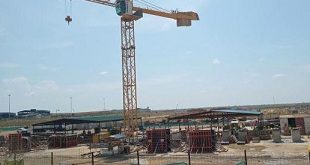“We are now re-organising ourselves and things will be better at the end of this month,” said a worker at one outlet who preferred anonymity to speak freely, “A section of suppliers are already showing interest to supply their products again.”
Sources familiar with the retail chain said unlike in the previous business arrangement, Nakumatt will this time round not accept suppliers to distribute goods directly to its outlets. Instead, they will supply products to its warehouse located along Gayaza Road in Kampala.
“This is intended to streamline the operations of the retail chain and minimize any possible loss that may arise out of fraud,” the sources said.
This development comes at the time the retail chain still awaits clearance from the Tanzania’s Fair Competition Commission (FCC) to sale 51% stake of its investment in the country for undisclosed amount.
Nakumatt has more than 60 outlets in Kenya, Uganda, Tanzania and Rwanda.
Concern about Nakumatt’s business health in Uganda rose around August 2016 when the company reduced its operating hours at its main branch at the Oasis Mall outlet in Kampala.
The branch cut six hours off its operation from 24 hours to 18 hours without adequate communication from management.
Last December, the South African Global Credit Ratings (GCR) downgraded Nakumatt long-term rating from BB to BB- indicating a weakened ability to meet outstanding financial obligations.
“The rating downgrade reflects the notable deterioration in Nakumatt’s credit risk profile,” GCR in the credit report.
“Growth of the business has been highly leveraged, with the ever-growing working capital and capex requirements having been largely funded through short-term debt.”
The rating agency noted that Nakumatt debt burden had quadrupled in the last four years to Ksh18 bn up from Ksh4.7 (Shs 157.4bn) in 2012 “placing unduly high pressure on the group’s gearing and liquidity position, with funding limits having largely been reached.”
The GCR revealed that it did not factor in plans by the regional retailer to sell a minority stake to new investors during the rating process as previous such plans had fallen flat.
Nakumatt was able to close a share sale this month following more than five years of back and forth, giving it much-needed funds to settle some of its debts.
Earlier, Nakumatt said its trouble stemmed from financial stress due to poor economic environment across the region but sources in the retail chain segment said its trouble emanated from lack of proper research in setting up new branches especially in Uganda.
They disclosed that the retail chain set up branches close to each other leading to a reduction in their profitability and so is the cash flow amidst high rental costs.
Started its operation in Uganda 2009, Nakumatt has nine branches in Uganda mainly in the central region; two in Bugolobi, a small city suburb, Oasis Mall in town, and at Acacia Mall in Kololo and Naalya. Others are in Bukoto and Katwe.
Going forward, Shah said the company plans to trade on reasonable terms with suppliers, and will be on full track by April.
“We are optimistic that suppliers will support the business going forward,” he said.
****
editor@independent.co.ug
 The Independent Uganda: You get the Truth we Pay the Price
The Independent Uganda: You get the Truth we Pay the Price



